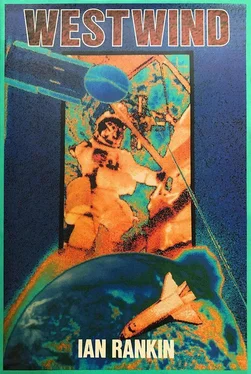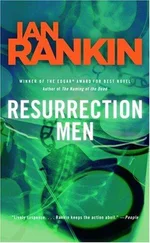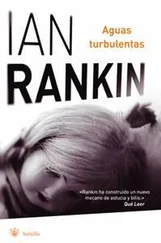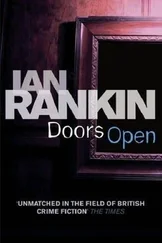‘My controller on the ground, Cam Devereux. He might know.’
Parfit nodded. ‘It’s an idea. But even supposing he knows anything, why would he tell us?’
Dreyfuss seemed not to understand the question.
‘I mean,’ Parfit said, ‘why should he be friendly towards us? Can we assume he’s not in on it — whatever “it” is?’
‘Well,’ said Dreyfuss, ‘can you think of anyone else who might have the answers?’
Parfit considered this. ‘Off the top of my head, no.’
‘Besides which,’ Dreyfuss continued, ‘I got on well with Cam. He sent flowers to the hospital. We struck up what you might call a special relationship.’
Parfit raised an eyebrow. ‘Any particular reason why?’
‘We had something in common,’ said Dreyfuss. ‘As kids, we were both scared to death of roller coasters.’
Parfit stared at him. Dreyfuss smiled back.
‘Well,’ Parfit said, ‘I suppose we’ve nothing to lose by talking to Mr Devereux. Best wait until we’re safely back in the embassy compound, though. We’ll try and contact him from there. All we need to do now is find someone who would know what that readout meant. Ze/446 — you’ve really no idea?’
‘No, but if Cam Devereux can’t help, I might know someone who can.’
Now Parfit looked genuinely impressed.
‘A friend of a good friend of mine,’ he continued. ‘He works with satellites in the UK.’
‘And what is his name?’
‘His name’s Hepton,’ said Dreyfuss. ‘Martin Hepton.’
Hepton took his car to the long-term car park at Heathrow and slept the night there. He awoke cramped and stiff, locked the car and wandered off towards the terminal building in search of breakfast. He hadn’t been to Heathrow in what seemed like years. The place was huge, a city almost in itself. Eventually he found what he was looking for, and drank two cups of coffee before buying an overpriced croissant, then another, then a third, chewing each one slowly as he considered his options. His first plan still seemed the best: get in touch with Dreyfuss.
It was early, but the cafeteria section was busy with business executives and security men. Hepton felt scruffy and a little too obvious. He went to the toilets and washed, tidying his hair as best he could. At the sky shop, he bought a comb and a toothbrush. He also bought two newspapers, neither of which carried any mention of Paul Vincent’s death. Not that he had expected them to.
He found a cashpoint machine, and was about to empty it of his day’s maximum allowance when he hesitated. Would they have access to his bank account? By ‘they’, he meant Villiers and Harry. If so, they could track him as far as Heathrow just by tapping into the present transaction. On the other hand, he had to have money, and if he took it out now at least they wouldn’t be able to pinpoint him to London itself. He might even be about to get on a plane, mightn’t he? Running scared and flying for cover. So he pushed the card home, tapped in his identity number and withdrew ten crisp ten-pound notes.
He had decided to leave the car here. For one thing, they had his licence plate number and the car’s description, so he didn’t want to drive it around London. Besides, he had the feeling that in London a car might actually slow him down. It wasn’t a series of roads out there; it was a jungle. Which was all to the good. He wanted to lose himself there, and hope the big-game hunter in the black Sierra went home without a kill.
He took the uncrowded Tube train towards town. It filled up as it hit west London, then became claustrophobic as it neared the centre. South Kensington came as merciful release. But all he was doing here was changing platforms to the District and Circle Line, and the train that eventually arrived was again crowded. How could people live like this? He thought of green fields, of Louth. Of hangings and cars trying to crush him... Safety in numbers: that was what a city provided.
So he stopped hating the packed carriage, and rubbed shoulders with an extraordinarily pretty young woman until Westminster, where, despite the temptation to keep travelling, he finally alighted. Tourists were already busying themselves with the day’s chores, cameras and video cameras trained on the Houses of Parliament and Big Ben. Hepton headed up Whitehall and realised suddenly that he didn’t know which of the large, anonymous buildings he needed. Understated signs beside the impressive doors were the only indication as to their identity. A man was striding purposefully towards him, black briefcase in hand. Hepton recognised the style of the briefcase: soft leather, more a school bag than a business case. There was a small crown above the nameplate. He had seen visitors from the MoD carrying such bags when they came to the base. He stopped the man.
‘I wonder if you can help me,’ he said. ‘I’m looking for the Foreign Office.’
The man said nothing; merely indicated with his head before walking on. Hepton stared at the building towards which he had nodded, then started towards its arched main door.
ALL PASSES MUST BE SHOWN declared the sign just inside the doors. Below it, another notice advised that security alert was condition Amber. Security alert was normally at Black. Hepton knew this from his own dealings with the MoD, though Binbrook had its own, different grading system. Above Black came Black Special, which meant there was cause for caution, and after Black Special came Amber. Amber was what government departments had gone to after the Libyan bombing. Amber was serious, only marginally less serious than Red. Hepton had never seen a Red alert, and, knowing what it meant, hoped he never would.
The uniformed guard was eyeing him suspiciously.
‘Can I help you, sir?’
‘I hope so,’ Hepton said. ‘I’d like to speak with someone about a friend of mine. This friend is in the United States, and it’s vital that I contact him. Is there anyone here who might help?’
‘Why not just phone your friend, sir?’
It was a fair question. Remembering Paul Vincent and Harry, however, Hepton knew that speed was of the essence. He hadn’t time to muck around, to engage in little games of ‘let’s pretend’. He needed to get past this first obstacle quickly, and he knew of only one sure way to do it.
‘Well,’ he said, ‘it’s not quite that simple. You see, he’s Major Michael Dreyfuss, the man from the shuttle crash.’
Eventually he was given a visitor’s pass to fill in, which he did, using the name Martin Harris. Then he was shown to an office along a sweeping, red-carpeted corridor. There were many doors, bearing room numbers and sometimes the name of an individual or a section. The room Hepton eventually entered, however, had neither. A young man sat behind a desk. He stood as Hepton entered, leaned across the table to shake his hand and gestured for him to take a seat.
‘Would you like some coffee, Mr Harris?’ There was a percolator standing on a table beside the small window.
‘Please,’ said Hepton.
As the man poured, Hepton studied the room. It had bookshelves, but no books, and the desk looked to be unused. Though it boasted some papers and a box of biro pens, there was a layer of dust covering its surface, evidence that this room wasn’t often occupied. He wondered if he had walked into some kind of trap.
‘Milk?’
‘Please, no sugar.’
He was handed a cup and saucer. The young man sat down again, sipped, then looked up.
‘So then, Mr Harris, what can we do for you?’
‘Well, I’m a friend of Major Michael Dreyfuss...’
‘Yes, so you said.’
‘And I really would like to get in touch with him.’
‘Any particular reason why?’
Читать дальше












